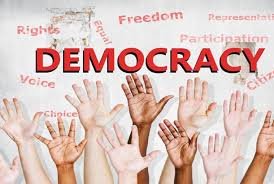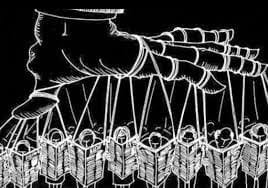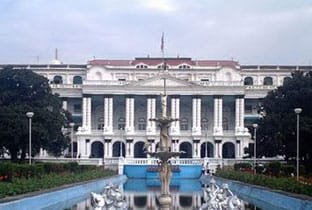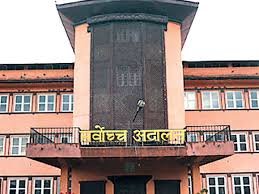Introduction to Political Environment
The political environment refers to the laws, rules, and government actions that affect how businesses operate in a country. The political environment includes the stability of the government, how it is organized, and how it interacts with the economy. Understanding the political environment is important for businesses, investors, and policymakers because it can greatly influence economic activities and decisions.
The political environment is crucial for businesses because it shapes the rules they must follow. A stable political environment helps companies plan for the future, while an unstable political environment can create uncertainty. When the political environment is organized and clear, businesses can operate more smoothly. Investors also pay attention to the political environment when deciding where to put their money. Overall, understanding the political environment is essential for making good decisions in business and investment.
Table of Contents
Significance of Political Environment for Business
Following are the significance of political environment for business:
Rules and Regulations: The government makes rules that businesses must follow. Understanding these rules helps businesses operate correctly and avoid problems. Following the rules can also build trust with customers and partners.
Stability and Predictability: When the government is stable, businesses can plan for the future with more confidence. They know that the rules won’t change suddenly. This stability allows businesses to invest in long-term projects and growth.
Investment Decisions: Investors look at the government when deciding where to put their money. A country with a stable government is more attractive for investment. When investors feel secure, they are more likely to fund new businesses and projects.
Access to New Markets: Government policies can affect how easily businesses can enter new markets. Understanding these policies helps businesses plan their market entry. This knowledge can lead to successful expansion and increased sales.
Influencing Public Policy: Businesses can influence government decisions through lobbying and advocacy. By understanding the government, companies can promote favorable conditions for their operations. This can lead to better support for their industry and improved business conditions.
Managing Risks: The government can present risks, such as changes in government or new regulations. By monitoring the government, businesses can identify potential risks and develop strategies to mitigate them. Being prepared for these risks can help businesses avoid losses and stay competitive.
Corporate Social Responsibility: The government often shapes societal expectations regarding corporate behavior. Businesses that align their practices with public values and government policies can enhance their reputation. This alignment can lead to increased customer loyalty and a positive brand image.
Competitive Advantage: Companies that understand the government can gain a competitive edge. They can adapt to changes more quickly and comply with regulations effectively. This ability to adapt can set them apart from competitors who are slower to respond.
Nepalese Political System
Nepalese political system may be explained under the following headings:
Political Ideology
Political ideology is a set of beliefs and ideas about how a government should work and what is important for society. It helps people understand their views on issues like freedom, equality, and the role of the government. Different types of political ideologies exist in the world.
Democratic

Democratic refers to a system of government in which the people have the power to make decisions about how they are governed. In a democracy, citizens can vote for their leaders and have a say in laws and policies.
Totalitarian

Totalitarianism refers to a system of government where the state has complete control over all aspects of public and private life. In a totalitarian regime, the government seeks to control not just the political system but also the economy, culture, education, and even people’s thoughts and beliefs.
Constitution (Political Structure)
A constitution is a set of fundamental laws and principles that outline how a government operates and how power is distributed. It serves as the highest legal authority in a country and establishes the framework for governance.
The constitution of Nepal 2015 was endorsed on September 16, 2015, by the Constituent Assembly meeting by more than two-thirds majority. It states Nepal as a federal democratic republican nation. It has 35 parts and 308 articles. The main goal of this constitution is to gain sustainable peace, good governance, development, and prosperity through the federal democratic republican system.
Fundamental Rights
- Right to Equality
- Right to Freedom
- Right to Privacy
- Right to Education
- Right to Employment
- Right to Social Justice
- Right to Freedom of Religion
- Right to Information
- Right to Health
- Right to Environment
- Right to Property
- Right to Constitutional Remedies
- Right to Language and Culture
- Right to Participate in Governance
- Right to Fair Trial
Government and Its Branches
Executive

The executive body is the part of the government that ensures laws are followed and carried out. It is led by the Prime Minister and includes officials who manage the country’s day-to-day activities. The executive body makes decisions about how to run the government and provides public services. In simple terms, it is the team that runs the government according to the laws.
Judiciary

The judiciary is the branch of government responsible for interpreting laws, administering justice, and resolving disputes. It ensures that laws are applied fairly and protects the rights of individuals. According to the Constitution of Nepal 2015, the following courts will remain in Nepal:
- Supreme Court
- High Court
- District Court
- Specialized Court
Legislative
The legislative branch is the part of the government that makes laws, and it plays a crucial role in shaping how the country is governed. It represents the people and has the power to create, change, or remove laws.
Political Parties: Players of Political System
Political parties are regarded as the pillar of the democratic system. They try to win the support of the people to elect their representatives and form legislation. Through legislation, they attempt to form a government and rule the nation according to their ideology and policies.
Major Political Parties in Nepal
Nepali Congress (NC)
Founded in 1947, the Nepali Congress is one of the oldest and most important political parties in Nepal. It supports democracy and social justice and works for the country’s development.
Communist Party of Nepal (CPN)
The CPN is a major party that believes in leftist ideas. It has split and merged with other groups over the years. The party focuses on helping poor people and promoting social equality.
Unified Communist Party of Nepal (UCPN)
This party was formed by bringing together different communist groups. It supports Marxist-Leninist ideas and aims for economic growth and better infrastructure in the country.
Rastriya Prajatantra Party (RPP)
The RPP is a right-wing party that wants to bring back the monarchy and establish Nepal as a Hindu state. It emphasizes national pride and traditional values.
Madhesi Jana Adhikar Forum, Nepal (MJAF)
This party represents the Madhesi people, who live mainly in the southern Terai region. It fights for the rights and representation of the Madhesi community and focuses on issues like identity and citizenship.
Constituitoinal Bodies
The following are the constitutional bodies in Nepal according to the Constitution of Nepal, 2015.
Commission for the Investigation of Abuse of Authority (CIAA)
This body investigates corruption and abuse of power by public officials. It aims to promote transparency and accountability in government.
Auditor General
The Auditor General oversees government spending and financial management. This office ensures that public funds are used properly and reports on financial accountability.
Public Service Commission (PSC)
The PSC is responsible for recruiting and managing civil servants in the government. It conducts exams and interviews to ensure that qualified individuals are selected for public service jobs.
Election Commission
This commission conducts free and fair elections in Nepal. It manages the electoral process, including voter registration and overseeing the conduct of elections.
National Human Rights Commission (NHRC)
The NHRC works to protect and promote human rights in Nepal. It investigates human rights violations and makes recommendations to the government.
National Natural Resources and Fiscal Commission (NNRFC)
This commission advises the government on the management and distribution of natural resources and fiscal matters, ensuring fair allocation of resources among different levels of government.
National Women Commission (NWC)
The NWC focuses on promoting and protecting the rights of women in Nepal. It works to address issues related to gender equality and women’s empowerment.
National Dalit Commission (NDC)
The NDC advocates for the rights and welfare of Dalits, a marginalized community in Nepal. It works to eliminate discrimination and promote social justice.
National Inclusion Commission (NIC)
This commission aims to promote the inclusion of marginalized and disadvantaged groups in society. It focuses on ensuring equal opportunities and representation for all communities.
Role of Government in Business
1. Regulation and Oversight: The government establishes laws and regulations that businesses must adhere to, ensuring safety, health, and fair practices. These rules help protect consumers by requiring companies to provide safe products and truthful advertising. For instance, food products must have clear labels showing nutritional information, which helps consumers make informed choices.
2. Economic Support: The government plays a significant role in the economy by collecting taxes from businesses, which fund essential public services like education and infrastructure. Additionally, it may offer financial support through subsidies and grants to encourage growth in specific industries, helping businesses expand and create jobs, especially in sectors deemed vital for the economy or environment.
3. Legal Framework: A strong legal framework is essential for business operations, as the government enforces contracts between parties, ensuring that agreements are honored. This legal support helps resolve disputes when one party fails to meet their obligations. Furthermore, the government protects property rights, including copyrights and trademarks, which safeguard businesses’ innovations and creations from being copied or stolen.
4. Partnership and Collaboration: Governments and businesses often collaborate to address social issues, such as environmental concerns or community development. By working together, they can create initiatives that benefit both the public and the business sector. Additionally, the government provides public goods, like roads and schools, which enhance the overall business environment and support economic activity.
5. Political Influence: Businesses frequently seek to influence government policies that affect their operations through lobbying efforts. They may hire lobbyists to advocate for their interests or form coalitions to push for favorable changes. Public opinion also plays a crucial role, as businesses must be aware of societal attitudes and adjust their practices to align with consumer expectations and values.
6. Challenges and Risks: Despite the support and structure provided by the government, businesses can face challenges such as corruption, where officials may demand bribes or favors, creating an uneven playing field. Additionally, regulatory changes can impact how businesses operate, requiring them to stay informed and adapt quickly to new laws and policies to remain competitive in the market.
Basic Issues in Business-Government Relations
Regulation and Compliance
Businesses have to follow rules set by the government, which can sometimes be hard to manage. Keeping up with changing laws can cost money and make it difficult for companies to operate smoothly. Finding a balance between necessary rules and allowing businesses to work freely is a constant challenge.
Taxation
Taxes can greatly affect how businesses run. High taxes might make it hard for companies to grow, while lower taxes can encourage them to invest and expand. There can be disagreements about what is a fair tax rate and how tax money should be spent.
Lobbying and Influence
Businesses often try to influence government decisions through lobbying, which means they hire people to advocate for their interests. While this is a normal practice, it can lead to concerns about fairness. Sometimes, big companies may have more power to sway decisions than smaller businesses or the general public.
Public Policy and Economic Development
Governments create rules and policies that can help or hurt businesses. Companies may feel that some government actions do not support economic growth or that certain industries get more help than others, leading to frustration.
Trade Policies
Trade rules affect how businesses buy and sell goods with other countries. Tariffs (taxes on imports) and trade agreements can create uncertainty for businesses. Companies often want favorable trade conditions, while governments must balance their own interests with those of other countries.
Environmental Regulations
As people become more concerned about the environment, businesses face more rules about how they can operate without harming nature. While these rules are important for protecting the environment, they can also increase costs for businesses, leading to debates about finding a balance.
Corruption and Ethical Issues
Corruption happens when officials act unfairly, which can hurt business-government relations. Businesses may face tough choices when dealing with government officials, especially in places where corruption is common. This can make it hard to have a fair business environment.
Risk Assessment of Political Environment
Risk assessment of the political environment, particularly concerning the business sector, involves analyzing various factors that can impact business operations, profitability, and overall stability. Here’s a structured overview of key risks associated with the political environment:
Political Stability
Political stability is important for businesses. If a country has frequent changes in government or political unrest, it can create uncertainty. Businesses may be hesitant to invest or expand if they fear sudden changes in rules or policies.
Regulatory Changes
Governments can change laws that affect businesses, such as taxes and labor rules. Sudden changes can create challenges and increase costs for companies. Businesses need to stay updated and be flexible to adapt to these changes.
Corruption
Corruption can make it hard for businesses to operate fairly. In places where bribery is common, companies may face extra costs and unfair competition. This can create an uneven playing field, making it difficult for honest businesses to succeed.
Economic Policies
Government economic policies, like tax rates and spending, can impact how businesses operate. High taxes or strict rules can limit growth, while supportive policies can encourage investment. Businesses should understand how these policies affect their plans.
Geopolitical Risks
Geopolitical factors, such as international relations, can affect businesses, especially those operating in multiple countries. Tensions between nations can lead to trade barriers or tariffs, impacting supply chains and market access.
Public Sentiment and Social Stability
Public opinion can influence the political environment. If businesses are seen as acting against community interests, they may face protests or backlash. Understanding public sentiment and being socially responsible can help businesses avoid risks.
Labor Relations
Labor laws and worker rights can vary by region. Changes in these laws can affect costs and how businesses manage their workforce. Companies need to be aware of labor issues to avoid legal problems and maintain a good work environment.
Issues in Nepalese Political Environment
The political environment in Nepal presents several issues that can impact governance, stability, and the business sector. Here are some key issues:
Political Instability
Nepal has experienced frequent changes in government and political leadership, leading to instability. This can create uncertainty for businesses and citizens alike, as policies and priorities may shift with each new government.
Corruption
Corruption remains a significant challenge in Nepal. Many citizens and businesses face demands for bribes or experience delays in government services due to corrupt practices. This undermines trust in public institutions and can hinder economic development.
Ethnic and Regional Tensions
Nepal is home to diverse ethnic groups, and tensions can arise between different communities. These tensions can lead to social unrest and impact political stability, making it difficult for the government to address the needs of all citizens.
Weak Governance and Bureaucracy
The governance system in Nepal often suffers from inefficiency and bureaucratic delays. This can make it challenging for businesses to navigate regulations and obtain necessary permits, leading to frustration and increased costs.
Lack of Infrastructure
Inadequate infrastructure, such as poor roads, limited access to electricity, and insufficient public services, hampers economic growth. The government’s ability to address these infrastructure needs is often limited by political priorities and funding issues.
Judicial Independence
The independence of the judiciary in Nepal is sometimes questioned. Political influence over the legal system can lead to concerns about fair trials and the enforcement of contracts, which can deter investment and business operations.
Economic Challenges
Nepal faces various economic challenges, including high unemployment rates and reliance on remittances from citizens working abroad. Economic policies may not always support sustainable growth, leading to concerns about long-term stability.
Environmental Issues
Environmental degradation and the impact of climate change are significant concerns in Nepal. Political decisions regarding environmental policies can affect agriculture, tourism, and other key sectors, making it essential for the government to prioritize sustainable practices.
Conclusion
The political environment in Nepal has several problems that can affect how businesses operate. Issues such as frequent changes in government, corruption, and tensions between different groups create uncertainty within the political environment for companies. Additionally, weak government systems and poor infrastructure hinder growth in the political environment. For businesses to succeed in Nepal, they need to understand these political environmental issues and be ready to adapt. By doing this, they can navigate the challenges of the political environment and find growth opportunities.
Frequently Asked Questions (FAQ)
What is the political environment in Nepal?
The political environment in Nepal refers to the laws, regulations, and government actions that affect how businesses operate. It includes the stability of the government, the political system, and the relationship between the government and the economy.
Why is political stability important for businesses?
Political stability is important because it allows businesses to plan for the future with confidence. When the government is stable, companies can invest in long-term projects without worrying about sudden changes in rules or policies.
What are the main challenges in the Nepalese political environment?
Key challenges include political instability, corruption, ethnic tensions, weak governance, inadequate infrastructure, and economic difficulties. These issues can create uncertainty and make it hard for businesses to succeed.

